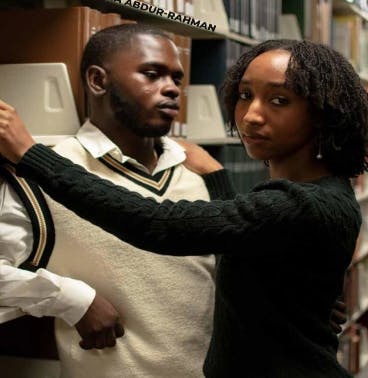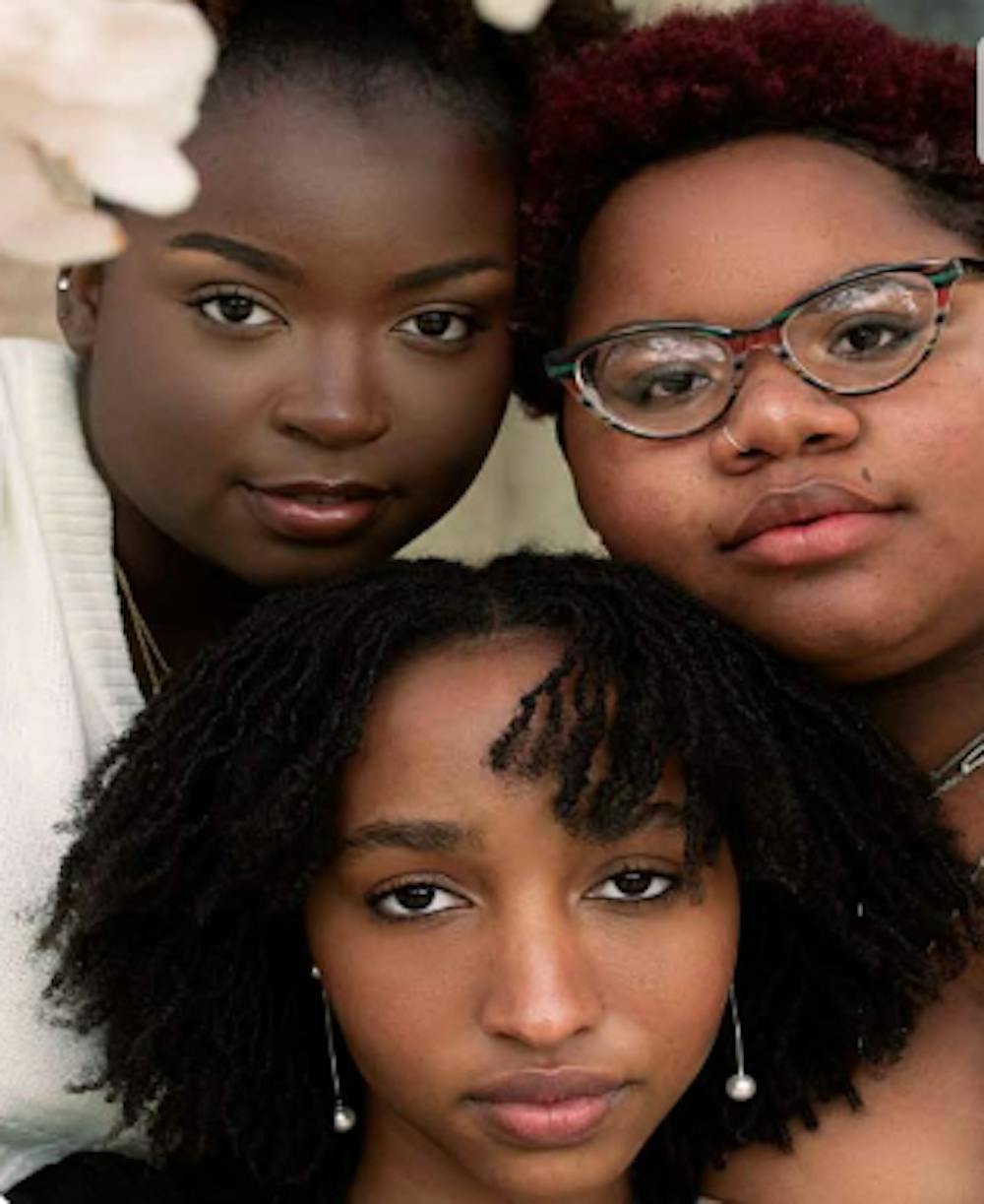Black students only make up 8.65% of American University’s student population, coining the university as a Predominantly White Institution, also known as a PWI. As conveyed through anonymous testimonies, social media posts and scholarly journals, being a person of color at a PWI can pose a distinctive set of challenges. Students of color at PWIs tend to have lower retention rates, consistently face discriminatory behavior, and disproportionately struggle to assimilate to their environment. Many Black students have testified that institutionalized racism on college campuses causes emotional distance between them and their white faculty and peers.
Many people view their college years as a period to experiment with relationships, dating and sex. Students of color tend to have a more challenging time socially assimilating at a PWI at a basic level, such as connecting with professors or befriending fellow classmates. Dating students poses a different level of difficulty, as it requires a much higher level of comfort and intimacy with fellow students. But what significance does a person of color’s gender have on their college dating experience? Through interviewing several Black women on campus about their romantic experiences while at AU, much is to be revealed about the subject.
First Impressions Amongst Women of Color at AU
Upon asking third-year student Jadyn Newman her first impressions of dating at a PWI as a woman of color, she didn’t have the most positive initial reaction. “It’s very difficult in a predominantly white space as a woman of color specifically because we’re not as valued. At least in terms of capability for romance like there’s definitely more so fetisization or literally no interest beyond sex.” Right off the bat, that can be a tough pill to swallow. The very fact that your race can make you feel less valued in the dating environment- unfortunate given that the inherent desire female students have to date is uncorrelated to their race.
This take was echoed by first-year Oni Chaytnor who voiced that the majority-white population at AU enforces white women to be the standard for beauty and dating. Chaytnor went on to say that women of color, particularly Black women, are often hypersexualized for parts of their body, such as having big butts or curves. Second-year student Aujenee Douglas conveyed a different side of the same coin: “It’s interesting because when I date outside of my race at AU (which it maybe tough for people to admit it because we’re perceived as so woke) sometimes I feel like I’m considered more palatable or as if I'm satisfying a white gaze because of my lighter complexion.” Douglas asserted that women of color at AU are often fetishized and she presumes she’s sought out by partners to appease an idea of being someone’s first “Black girlfriend”. Whether it’s a curve on their body or a shade of brown, these women often feel toyed with to satisfy the whims of the male gaze.
There’s More than you Think Behind the Sneaky Link
Navigating the bounds of dating and sexual relationships can be tough for women especially in college. It has been studied by doctors and mental health professionals that men and women do not enjoy casual sex the same way. Women tend to have a harder time than men preventing emotional attachment from casual sex; they are more prone to feeling used, depressed, regretful, or embarrassed after the fact. A study done within The Journal for Sex Research found a stronger positive correlation of negative emotional outcomes for women who engage in frequent hookups, while men tend to experience the opposite—more casual sex creating more positive feelings.
However, racial identity can add another layer to this complex phenomenon. Jadyn Newman voiced the blunt reality that many women of color face while hooking up. “Hookup culture is easier, a lot of times, when being single is a choice rather than a circumstance you’re stuck in. There’s this idea that being single is so freeing, but when being single is due to a factor you can’t control like people not being interested in your race, it’s not fun. It makes hookup culture seem like something you have to do rather than want to do.” It’s not an uncommon occurrence for women of color at AU to be presented with hookups as their only available source of intimacy. A tough circumstance to be faced with, given that their gender is already predisposed to negative emotional outcomes from casual sex.
Chaytnor believes there is a balance of women of color being included and excluded from hookup culture. She asserts that due to the hypersexualization of Black women- “of course they’re going to want to hook up with you and then leave you afterwards like you’re disposable. But because of the presence of Eurocentric beauty standards men are always going to be attracted to white women because that’s been the beauty standard for so long.” There were some varied observations amongst the women interviewed regarding hookup culture, but the racial hierarchy in dating presented more unified remarks.
What Responsibility do Men of Color Have?
It’s not a new observation that men of color tend to put white women on a pedestal while dating, maybe especially so. Abishek “Shake” Chaterjee starring in the television series Love is Blind has been criticized for sentiments fueled by internalized racism. Abishek admitted that he exclusively dates white women and has never dated another race. He also described costar Deepti Vempati- an Indian woman who he almost ended up with- as physically unattractive and compared his feelings towards her as “aunt”-like. However, these sentiments don’t only exist on your television screen.
All women of color interviewed expressed that men of color have a responsibility to understand how the women in their racial group are experiencing life. Newman pointed out that “There is a level of internalized racism with men of color that choose to explicitly date white girls. If you’re a Black man, like your mom’s Black. Why don’t you want to date Black girls?” Chaytnor commented on how men of color may view dating as a way to gain social traction. “Men of color have been conditioned to believe that white women are the ideal, so they will bash women belonging to their own race to uplift white women and be with them because they want to gain social status.” That may be a tough reality to accept- that a woman of color’s chance of connecting with a man from her own race could be clouded with his desire to be socially accepted. Of course, this could not always be true- but may happen more frequently at a PWI than anywhere else. A strong statement delivered by Newman to conclude on- “This goes for any men of color- you were probably raised by powerful women within your race. So there's no excuse as to why you feel you are “too good” to be dating a woman of color.” An interesting fallacy is present- being raised by a woman of color would theoretically constitute a man’s identity far greater than dating one. But that logic may pervade most college-aged men- especially those who just want to earn the respect of other men.

The Effect on Perceptions of the Self
Are the inequities of dating at a PWI a victimless crime? Well, obviously no laws were broken or crimes were committed. But feeling left-out, rejected, and othered does make women of color question themselves and their self-worth. Chaytnor says, “It’s hard to not associate male attention with how pretty you are because you start to think, if people aren’t attracted to me, like, am I even attractive?” Douglas says that “it was hard to explore dating just because I don’t think I was considered the beauty standard in high school. That somewhat led to insecurities but I am much more confident now and am better and discerning my experience as a woman of color within the romance sphere. I sometimes still struggle with the idea of colorism in my romantic relationships but I think it’s something I’ve just learned to accept or acknowledge.” Acknowledging and overcoming such insecurities seems to be a process that gets easier with time. Newman expressed that she’s done a lot of reading from other women of color on this topic- some of her favorites are This Will Be My Undoing by Morgan Jerkins, Ain’t I a Woman by Sojourner Truth and Thick and Other Essays by Tressie McMillan Cottom.
Newman offered a passionate and empowered take of her own: “I’ve decided to free myself from this idea of needing someone and assume that whatever I attract is meant to come to me rather than trying to seek out something that’s subpar because I don’t deserve anything that’s subpar. There’s an understanding you need to have within yourself that you’re worth more than being with someone who doesn’t respect you or consider you their first choice. You should always be someone’s first choice.”
Closing Advice and Remarks
While all the women interviewed had similarities and differences in perspective, they all felt like their identities as women of color made an impact on their dating experiences at AU. They are young women still grappling with these emotions, yet they wanted to offer some helpful advice to other women of color at AU. Douglass assures, “I would genuinely advise anyone that identifies as a woman of color that is also interested in dating to take time to make peace with themselves before pursuing any romance. No matter your race, I think it's important to develop a strong sense of identity in order to know what you desire and what boundaries are necessary so that you can communicate that with your partner. Know that if you’re ever struggling with entering the “dating scene”, there is someone out there for you and you will find them in due time. There is no need to rush nor accept the first opportunity that comes to you.” Newman had guidance to share of her own: “It’s truly not a reflection of you or who you are if you have bad luck on the dating scene while in college. A lot of the advice I’ve read from other women of color about this have now come out of college and are in happy relationships. Don’t dilute yourself in order to pursue a relationship right now. It may seem like it's very important and I'm probably talking a lot for someone who still gets very upset about this. Trust me, I’m nowhere near at peace with this because it's a tough situation to be in. The older you get, the more you will grow at peace with who you are regardless of who likes you or who wants you. You will also begin to understand that this is not an isolated issue by any means. To say that you don’t have the best luck in your four years at college doesn’t mean you won't meet someone outside. If it is something that’s very important right now there are other circles, other schools in the area. I know some people do long-distance with folks from home. So even if you feel like you're stuck, which I can completely understand, there always is another option.”
There are always options, but that can be hard to realize- especially when the numbers are not in your favor. American University being 63% female and 37% male offers a much smaller dating pool for women who are interested in dating men. Having a racial background that is not as desired amongst said men could limit the pool even further. Therefore, there are statistical elements which influence AU’s dating scene. Do with that information as you will, nevertheless there is a strong community of women of color at AU that have your back and understand our shared experience here.



